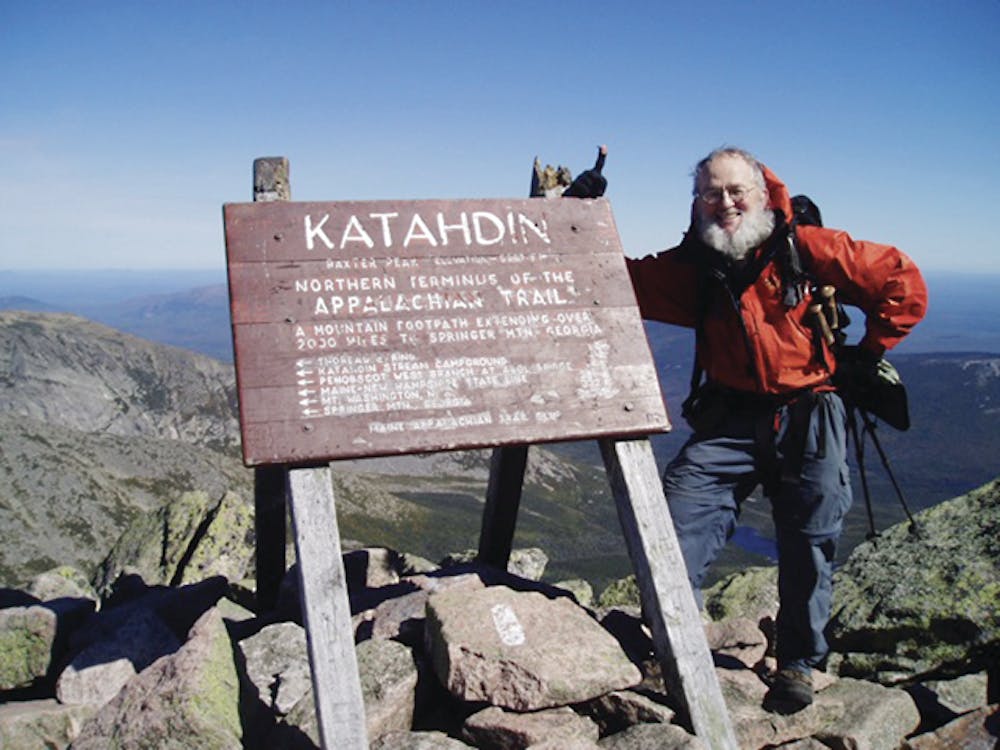Bill Luttge never introduced himself with his accomplishments, though he had enough to fill a conversation.
At UF, he was Dr. Luttge, the founding executive director of the McKnight Brain Institute. But out on the trails, he was just FireBall, an enthusiastic hiker eagerly soaking up the outdoors.
Luttge died Saturday from complications of multiple myeloma, a plasma-cell cancer. He was 67 years old.
Luttge worked for UF from 1971 to 2004. He started as an assistant professor of neuroscience and rose to lead the department.
He focused on preventing diseases through education.
“His idea wasn’t just lab research for research’s sake, but lab research in the service of people and patients,” said Dr. Mark Gold, the chairman of the College of Medicine’s psychiatry department.
In the 1990s, Luttge spearheaded a proposal for an $18-million grant that would allow UF to build a brain and spinal cord research center.
The institute opened in 1998 and brought in departments such as music and engineering. His approach broke down barriers between disciplines, which made the institution notable and its solutions comprehensive.
“He always treasured the fact that the institute is not a building, it’s a campus-wide collaboration,” said Michaelyn Luttge, his wife of 47 years.
Luttge would bound up five stories of stairs, taking them two at a time, to grab Gold from a lab and bring him down to meet someone working in a new way.
“It would be hard to explain to you just what a debt of gratitude everyone in the College of Medicine — and really everyone that’s benefited from treatment and discoveries from the McKnight Brain Institute — owe him as the never-say-no and never-say-die leader of the enterprise,” Gold said.
When Luttge retired eight years ago, he left for Georgia to hike the Appalachian Trail. He finished in Maine in late September 2004.
Hikers he met along the way nicknamed him FireBall after the candy he liked to eat and the crispness of his walk. His wife, nicknamed Hot Chocolate, followed him in a truck with a trailer, meeting him at predetermined stops for new supplies and good sleep.
The retired couple fell comfortably into this routine, hiking for six to nine months each year. Luttge completed the Pacific Crest Trail and Florida Trail, among others.
When Luttge’s wife and their dog, Percy, arrived at their meeting place before him, they would often hike in Luttge’s direction to surprise him. But sometimes they chose the wrong one.
“People would have to say, ‘Oh, I think I saw this lady, she went the other way,’” she said. “So after a long day’s hiking, he would have to run the other way to find me.”
Luttge’s love for nature transcended the trails.
Last Christmas, Luttge and his grandson marked a path through the Luttges’ 20-acre property. They made a map and tested their skills with a treasure hunt. He had hoped that someday, he and his grandchildren would travel other trails together.
With them, he wasn’t Dr. Luttge, who founded a prestigious research institute, or FireBall, who journeyed through the Applachian Trail.
He was just Grandpa.
Contact Julia Glum at jglum@alligator.org.
Dr. Bill Luttge poses at the northern end of the Appalachian Trail on the top of Mount Katahdin in Baxter State Park in Millinocket, Maine in 2004.






